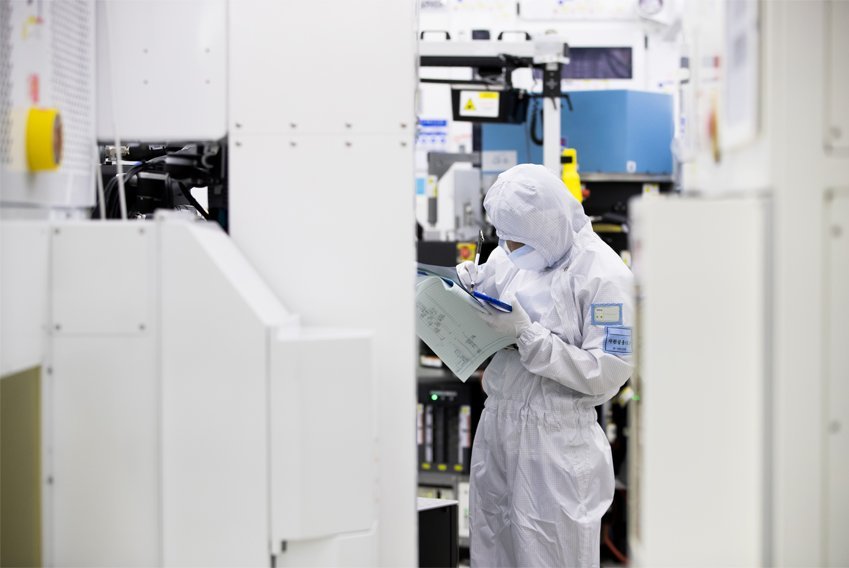[News Focus] After a year of restricted trade with Japan, Korean materials industry has grown stronger
By Song Su-hyunPublished : June 25, 2020 - 17:08

It’s been nearly a year since Japan imposed restrictions on its exports to South Korea of key high-tech materials used in chipmaking, the economic pillar of Asia’s fourth-largest economy.
At the time, Korea panicked. But one year on, Korea has made significant efforts to reduce its dependence on Japan, which is a close neighbor but also a rival on many fronts, by diversifying its import channels and localizing its materials technologies.
On July 1 last year, Japan abruptly moved to restrict exports of three key materials -- photoresists, etching gas (hydrogen fluoride) and fluorinated polyimide -- used in semiconductor and display manufacturing.
This was viewed as retaliation for a verdict issued in 2018 by a Seoul court, which ordered some Japanese firms to compensate Korean victims of forced labor during the Japanese colonization of Korea.
Korea’s two biggest chipmakers, Samsung Electronics and SK hynix, and display panel makers such as Samsung Display and LG Display, were put on high alert as they were purchasing over 90 percent of their photoresists and over 40 percent of their etching gas from Japan.
In response, the government and companies took swift action to strengthen the materials industry.
SK Materials is now capable of supplying etching gas to the world’s top two memory companies, Samsung and SK hynix, within this year.
Samsung and SK hynix have successfully tested the Korean material at their manufacturing sites, according to industry sources.
SK Materials also aims to build an ArF photoresist plant next year.
Material developers such as Soulbrain and Ram Technology have ramped up their development and production capabilities for hydrogen fluoride.
The chipmakers also started to purchase etching gas from US-based Matheson and extreme ultraviolet photoresist from Belgium-based RMQC.
The development of materials at home and the companies’ efforts to diversify their suppliers are expected to further reduce Korea’s reliance on Japanese imports.
According to data from the Korea International Trade Association, Korea’s imports of etching gas from Japan slid 85.8 percent year-on-year during the period between January and May.
Overall, imports from Japan accounted for 12 percent of the country’s total material imports, down from 44 percent.
“Companies have been making meaningful efforts to overcome the situation over the last year,” said an industry official. “Materials supplies have been managed at a stable level so far, but we can’t fully reassure as the political tension between Korea and Japan continues.”
The Korean government has allocated 2.1 trillion won ($1.74 billion) from this year’s budget to support the growth of the materials, parts and equipment industries. Its goals are to secure a stable supply of 100 key items to protect the sectors in the event of another trade war.
By Song Su-hyun (song@heraldcorp.com)








![[KH Explains] How should Korea adjust its trade defenses against Chinese EVs?](http://res.heraldm.com/phpwas/restmb_idxmake.php?idx=644&simg=/content/image/2024/04/15/20240415050562_0.jpg&u=20240415144419)










![[Today’s K-pop] Stray Kids to return soon: report](http://res.heraldm.com/phpwas/restmb_idxmake.php?idx=642&simg=/content/image/2024/04/16/20240416050713_0.jpg&u=)